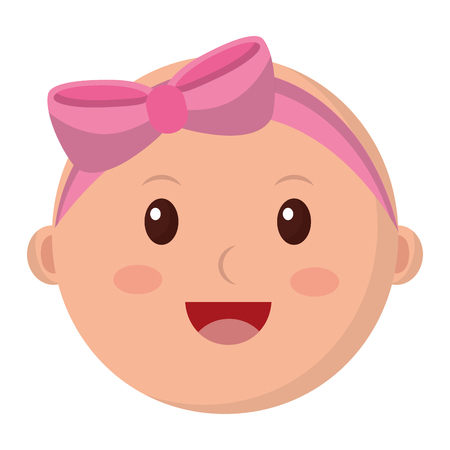1. Introduction to Toddler Social Development
Social development in toddlers is a fascinating journey, filled with big milestones that lay the foundation for lifelong skills. Between the ages of 1 and 3, little ones start to move from parallel play (playing alongside others) to more interactive forms of play. During this stage, toddlers learn how to share, take turns, express their emotions, and begin to understand the feelings of others. These early social experiences are crucial because they help children build confidence, develop empathy, and establish healthy relationships as they grow.
Key Social Development Milestones in Toddlers
| Age | Milestone | What It Looks Like |
|---|---|---|
| 12-18 months | Parallel Play | Toddlers play near each other but don’t interact much yet. |
| 18-24 months | Imitation & Sharing | Children start copying adults or peers and may offer toys. |
| 24-36 months | Simple Cooperation | Toddlers begin playing simple games together and practice taking turns. |
Why Early Social Skills Matter
Early social skills are more than just “being nice” or making friends. They help toddlers manage their emotions, communicate effectively, and solve problems. Research shows that children who develop strong social skills early on often do better academically and emotionally later in life. Positive early social interactions also make group activities—like preschool or family gatherings—much smoother for both kids and parents.
2. What is Structured Play?
Structured play refers to activities that are organized and guided by adults, such as parents, teachers, or caregivers. These activities have specific rules, goals, or directions, making them different from free play, where children decide what to do on their own. In the United States, structured play is a common part of early childhood programs and home routines.
Definition of Structured Play
Structured play involves planned activities that help toddlers learn new skills in a supportive environment. An adult usually sets up the activity and provides instructions or guidance along the way. These activities are designed to develop social skills like sharing, taking turns, following rules, and listening to others.
Examples of Structured Play in the U.S.
| Activity Type | Description | Social Skills Practiced |
|---|---|---|
| Group Story Time | An adult reads a story to a group of toddlers and asks questions during or after the reading. | Listening, patience, verbal communication |
| Music and Movement Classes | Toddlers sing songs and follow dance moves led by an instructor. | Following directions, cooperation, self-expression |
| Organized Sports for Toddlers (like mini-soccer) | A coach teaches simple rules and guides children through drills or games. | Teamwork, turn-taking, understanding rules |
| Arts and Crafts Sessions | An adult provides materials and shows how to make a simple craft project. | Fine motor skills, creativity within structure, listening to instructions |
| Simon Says or Freeze Dance | An adult leads a game where children must listen closely to perform actions correctly. | Self-control, attention, quick thinking |
Common Places for Structured Play in the U.S.
- Preschools: Teachers lead group games, circle time, and learning activities daily.
- Community Centers: Offer toddler classes like music or gymnastics with set routines.
- Parks and Recreation Programs: Host parent-and-child sports sessions or art workshops.
- Playdates at Home: Parents organize board games or simple science experiments for small groups.
The Value of Adult Guidance in Structured Play
When adults guide toddlers through structured play, they model positive social behaviors and help children practice important life skills in a safe setting. This kind of play can boost confidence, teach responsibility, and create opportunities for toddlers to interact with peers in meaningful ways. By joining these organized activities, young children learn how to cooperate with others while having fun.

3. What is Unstructured Play?
Unstructured play is all about giving toddlers the freedom to explore, create, and interact with their world in their own unique way. Unlike structured play, which is guided by rules or adult instructions, unstructured play lets children take the lead. This type of play is spontaneous and open-ended, allowing kids to use their imagination and natural curiosity to drive their activities.
Everyday Examples of Unstructured Play
Unstructured play can happen almost anywhere and at any time. Here are a few common examples that many American families will recognize:
| Type of Unstructured Play | Where It Happens | Description |
|---|---|---|
| Free Play at the Park | Community parks, playgrounds | Toddlers choose what to climb, swing, dig, or run after—no set agenda, just pure exploration. |
| Imaginative Play at Home | Living room, backyard, bedroom | Kiddos might pretend theyre pirates on a sofa-ship or cook up a storm in a play kitchen using whatever toys or household items they find. |
| Child-Led Activities | Anywhere safe for toddlers | The child decides the game—maybe building a block tower or dressing up in costumes—with minimal adult direction. |
How Unstructured Play Supports Social Development
Through unstructured play, toddlers develop important social skills naturally. When children are free to choose their activities and partners, they practice sharing, negotiation, problem-solving, and empathy. For example, when two toddlers decide to build a sandcastle together at the park, they learn how to communicate their ideas and compromise if they have different visions.
The Role of Parents and Caregivers in Unstructured Play
Parents and caregivers play a supportive but non-directive role during unstructured play. Instead of giving instructions or setting specific goals, adults provide a safe environment and encouragement. This gives toddlers the confidence to try new things and interact with others on their own terms.
4. Benefits of Structured Play for Social Development
Structured play is any activity that has clear rules, goals, or guidelines and is often led by an adult or older child. Think of games like “Simon Says,” building with blocks according to a picture, or group activities at daycare. While unstructured play lets toddlers use their imagination freely, structured play offers unique benefits for social development.
How Structured Play Supports Social Skills
During structured play, toddlers learn important social skills that they’ll use throughout their lives. Here are some key ways structured play supports healthy social growth:
Cooperation
Many structured games require children to work together to achieve a common goal—like completing a puzzle or building a tower as a team. This teaches toddlers how to share ideas, take turns, and support each other.
Following Rules
Every structured game has its own set of rules, whether it’s waiting in line for a turn or staying inside a certain area. By practicing these rules in a fun environment, toddlers begin to understand why rules matter and how to respect them.
Teamwork
Working as part of a group during structured play helps children see the value of teamwork. They learn how to listen, contribute, and celebrate together when they accomplish something as a team.
Key Social Skills Gained Through Structured Play
| Skill | What It Looks Like in Toddlers |
|---|---|
| Cooperation | Toddlers help each other pick up toys or follow group instructions |
| Rule-following | Toddlers wait for their turn and listen to directions during games |
| Teamwork | Toddlers work together on art projects or group tasks |
| Communication | Toddlers express needs and share ideas while playing together |
| Problem-solving | Toddlers figure out how to solve challenges as a group (like building a tall block tower) |
Everyday Examples from American Culture
In many American preschools and playgroups, teachers use songs like “The Hokey Pokey” or classic games such as “Duck Duck Goose.” These activities are not just fun—they’re carefully designed opportunities for children to practice following directions, taking turns, and cheering each other on. Even simple board games with family at home can offer these same benefits.
The Takeaway on Structured Play
While free play sparks creativity, structured play lays the foundation for healthy social relationships. Through guided activities with friends and caregivers, toddlers build cooperation skills, learn about fairness, and experience the power of working as part of a team.
5. Benefits of Unstructured Play for Social Development
Unstructured play is a powerful tool for helping toddlers grow socially. Unlike structured play, which is led by adults and follows set rules, unstructured play lets kids explore, imagine, and interact at their own pace. This freedom gives toddlers the chance to learn important social skills that set the foundation for future relationships and teamwork.
Encouraging Creativity Through Open-Ended Play
When toddlers engage in unstructured play, they use their imagination to turn everyday objects into anything they want. A cardboard box can become a spaceship, or a blanket can transform into a magic cape. This kind of creative thinking helps children express themselves and understand the world around them.
Creativity in Action
| Unstructured Play Activity | Creative Outcome |
|---|---|
| Building with blocks | Designing towers, castles, or entire cities from scratch |
| Pretend play with dolls or action figures | Inventing stories and new scenarios each time |
| Drawing without instructions | Expressing feelings, ideas, and unique perspectives |
Practicing Negotiation With Peers
During unstructured play, toddlers often need to share toys, take turns, and make group decisions. These moments are perfect opportunities to practice negotiation skills. For example, if two kids want the same toy truck, they may talk it out or come up with a way to both enjoy it together. Over time, these small negotiations help toddlers understand compromise and fair play.
Common Social Skills Built During Unstructured Play
| Skill | Description | Example Scenario |
|---|---|---|
| Negotiation | Finding solutions that work for everyone involved | Deciding who gets to be “it” in tag first |
| Cooperation | Working together to achieve a common goal | Building a sandcastle as a team at the playground |
| Empathy | Understanding and sharing others feelings | Comforting a friend who is upset after losing a game |
Boosting Independent Problem-Solving Skills
Toddlers face many little challenges during free play—like figuring out how to stack blocks so they don’t fall or deciding what to do when another child takes their toy. Without an adult stepping in right away, children learn to solve these problems on their own. This builds confidence and teaches them how to handle similar situations as they grow older.
The Takeaway: Why Unstructured Play Matters for Toddlers’ Social Growth
Unstructured play gives toddlers the space they need to be creative, negotiate with peers, and solve problems independently. These experiences are essential for building strong social skills that will help them succeed in school and beyond.
6. Finding the Right Balance for Your Toddler
Understanding Your Toddler’s Needs
Every toddler is unique, and finding the right balance between structured and unstructured play depends on your child’s personality, interests, and energy levels. Structured play, like music classes or story time at the library, gives toddlers a chance to follow directions and practice social skills in a group setting. Unstructured play—think of free time at the park or imaginative games at home—lets children explore, create, and solve problems on their own terms.
Incorporating Play into American Family Routines
Many American families already have routines that can easily include both types of play. Here are some everyday opportunities:
| Time of Day | Structured Play Ideas | Unstructured Play Ideas |
|---|---|---|
| Morning | Puzzle time after breakfast Follow-along exercise videos for kids |
Dress-up with costumes Building with blocks or Legos |
| Afternoon | Attending a library story hour Music class at a local community center |
Free play at the playground Drawing or painting with no set rules |
| Evening | Family board game night Simple cooking tasks together (following steps) |
Pretend kitchen play Dance party with favorite songs |
Tapping Into Community Resources
Across the U.S., there are plenty of resources to help you blend both types of play:
- Parks and Recreation Centers: Offer open gym times (unstructured) and organized sports or classes (structured).
- Public Libraries: Host story times, music sessions, and craft hours for young children.
- Museums: Many children’s museums have both guided activities and discovery zones for independent play.
- Parent Groups & Playdates: Local parenting groups often organize structured meetups while also allowing time for free play among kids.
Tips for Caregivers: Making It Work Every Day
- Create a flexible schedule: Alternate between structured activities and unstructured free time based on your toddler’s mood and needs.
- Be observant: Notice which types of play your child enjoys most, and adjust accordingly.
- Mix it up: Don’t be afraid to switch things around! Try new community activities or change up home routines to keep things fun and engaging.
- Encourage social interaction: Whether it’s joining a class or heading to the local playground, give your toddler chances to interact with peers in different settings.
Your Role Matters!
You don’t need special toys or fancy programs to support your child’s development. By offering a mix of structured and unstructured play—and using everyday family moments—you’re helping your toddler learn valuable social skills that will last a lifetime.
7. Conclusion and Practical Tips
Understanding the balance between structured and unstructured play is key to supporting toddlers’ social development. Both types of play offer unique benefits that help children learn how to interact, communicate, and build friendships. Here’s a summary of the main points and some simple, effective tips for parents and caregivers in the U.S.:
Key Takeaways
| Type of Play | Main Benefits | Examples |
|---|---|---|
| Structured Play | Teaches rules, cooperation, turn-taking, listening skills | Storytime groups, organized games like “Simon Says,” music classes |
| Unstructured Play | Encourages creativity, self-expression, problem-solving, flexible social skills | Free play at playgrounds, dress-up, open-ended toys like blocks or dolls |
Practical Tips for Parents and Caregivers
- Create a Balanced Routine: Aim to include both structured activities (like joining a toddler music class) and plenty of free time for your child to explore and play on their own.
- Follow Your Child’s Lead: Pay attention to your toddler’s interests. If they’re deeply engaged in building with blocks or pretend play, give them space and encouragement.
- Model Social Skills: Show your child how to share, take turns, and use kind words during both types of play. Narrate what you’re doing so your toddler can learn from example.
- Set Up Playdates: Arrange short play sessions with other kids. Start with one-on-one playdates before trying larger groups to avoid overwhelming your toddler.
- Encourage Problem-Solving: If conflicts arise during play, guide your child through simple solutions instead of stepping in immediately. For example, ask “What do you think we can do if both of you want the same toy?”
- Use Everyday Opportunities: Grocery shopping or park visits can become learning moments—point out sharing behaviors or talk about waiting in line as forms of social interaction.
- Praise Positive Interactions: When your child shares or cooperates well, offer specific praise: “I noticed you waited for your turn—great job being patient!”
Cultural Considerations in the U.S.
- Diverse Social Settings: In many American communities, children are exposed to diverse cultures and backgrounds. Encourage curiosity and respect for differences during group activities.
- Community Resources: Take advantage of local libraries, recreation centers, or “Mommy & Me” groups—they often offer both structured classes and open playtimes perfect for social growth.
Your Support Makes a Difference!
The right mix of structured guidance and unstructured freedom helps toddlers develop healthy social skills that will benefit them throughout life. With a little planning—and plenty of patience—you can nurture your child’s confidence and kindness every day.


